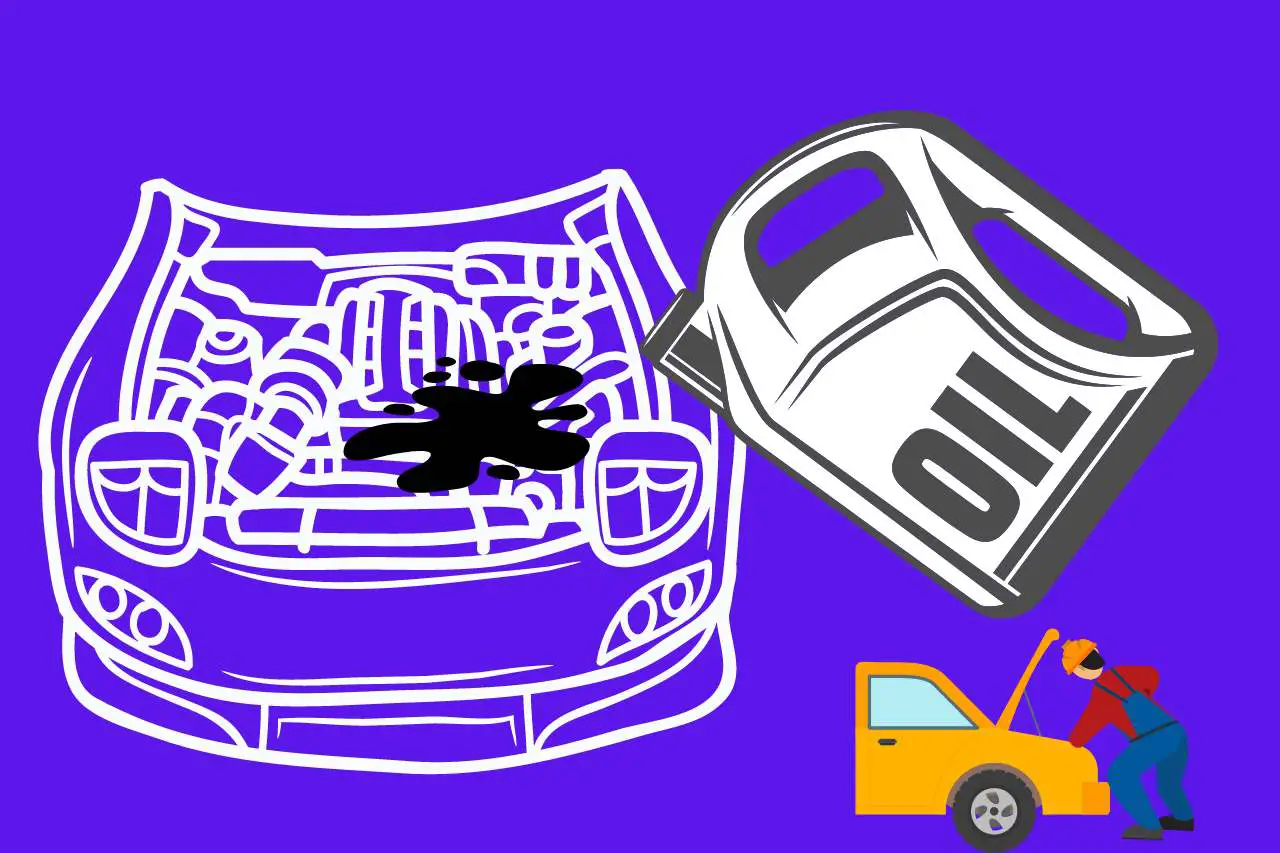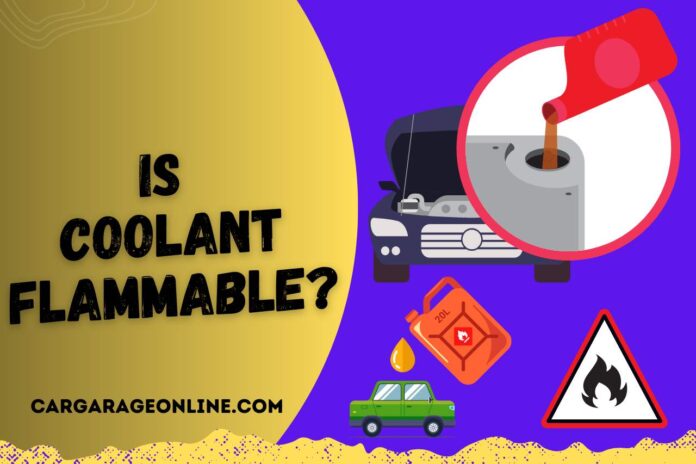Coolant is a fluid that is used to absorb and dissipate heat to prevent the engine from overheating and damage caused by high temperatures. It is used to regulate the temperature. It has a high thermal capacity with a low cost and velocity. When the coolant level in the car is low, the car can overheat quickly. Coolant is a liquid used in engines and radiators. Coolant contains a mixture of water and ethylene glycol or propylene glycol- and antifreeze substances. The coolant circulates around the engine block to absorb heat through combustion. The coolant is routed to the vehicle’s radiator. This is where heat is released into the atmosphere. This will help to regulate the temperature and prevent overheating. Is coolant flammable?
Is Coolant Just Water?
Water can actually be used as a coolant in some cases For, example, in industrial machines or other automotive systems. But coolant usually is not just water. In automotive, coolant is a mixture of water and antifreeze, a substance.
This coolant provides protection and a cooling effect on the engine. The coolant antifreeze substance has additives that act as a lubricant to prevent corrosion.
One can use water as a coolant to run the vehicle. But it won’t necessarily provide protection to the engine. So, whenever you notice a low coolant level in your vehicle, fix it quickly.
Since coolant has a higher capacity for heat compared to water, it requires more heat to reach the same level of temperature compared to the use of water.
In order to keep nitrate, phosphate, and silicates of the coolant suspended, water is essentially added to it. When water is not added, these additives will settle at the bottom. This would affect the corrosion potentials and protection of the engine and its performance.
Is Coolant Flammable?
Whether coolant is flammable depends on the type of coolant the vehicle uses. Some are flammable, while some are not. There are some old automotive coolants that have ethanol or methanol, which are highly flammable.
Modern or recent coolant fluids contain ethylene glycol or propylene glycol. These additives are not flammable. There are some coolants used for electronic devices, such as oils and hydrocarbons. These can be flammable when in contact with sparks. The water and synthetic coolants are not flammable.
It is always better to follow instructions and safety protocols when using coolant. This will help prevent fire hazards.
Why is Coolant Flammable?
An average system needs at least 5 liters of coolant for its engine. Always stick to the same brand and type of coolant.
Different brands have different types of fluids added to them, which, when mixed, can be dangerous. Not all types of coolants are flammable. It becomes flammable due to certain chemical constituents used.
Some coolants contain alcoholic solvents. These alcoholic solvents like ethanol or methanol are a risk of flammability. This makes the coolant a potential fire hazard.
The flammability of the coolant depends on certain factors like purity, and chemical concentration, when under use. Some coolants have the potential to ignite even if it is known to be non-flammable.
What Temp Does Coolant on the Engine?
The temp of a coolant used for an engine depends on factors like engine type, operations, and the nature of the coolant used. The ideal temp for an engine coolant ranges from 180 degrees Fahrenheit to 220 degrees Fahrenheit.
There is a coolant temperature sensor used to monitor the coolant temperature. This sensor is located in the radiator or the engine block.
This sensor is used to send a signal to the ECM or engine control module, which adjusts the operating parameter of the engine.
This includes the ignition timing or fuel injection. This builds efficient performance.
In case the coolant temperature rises, the engine can overheat, damaging certain components of the engine. And when the coolant temperature is very low, it creates inefficiency in engine operations. This will impact the emission and reduce the fuel economy.
What If I Spill Coolant on the Engine?
It is better to clean the coolant off the engine as soon as possible in case you spill the coolant on the engine. This will help prevent any type of damage to the engine and its parts.
- When you spill coolant on the engine, turn off the engine before you clean the spill. This will help cool the engine.
- If the spill is a small one, it will only be seen as a stain on the engine or the ground below. If the spill is a large one, we can notice a strong smell or steam from the engine.

- Use a towel, sponge, or an absorbent material to wipe the coolant fluid gently.
- Use water and rinse the coolant. This will help remove the coolant from the engine and protect it from further damage to the parts.
- Next, check for any leaks or damages. In case you notice such a leak, get help from a professional mechanic.
Is Ethylene Glycol Antifreeze Flammable?
Yes, ethylene glycol is a flammable chemical that is used as a coolant with water. Sometimes ethylene glycol is mixed with other constituents like methanol and ethanol, which are also highly flammable.
The extent to which the substance or fluid is flammable depends on the concentration and formula of the mixture. Ethylene glycol is also a toxic and harmful chemical that can affect when inhaled or ingested.
Always make sure to wear protective equipment and other items when handling such flammable liquids. Any spills or sparks can ignite a potential fire hazard. You should always make sure to go through the valuable information to figure out whether the option you picked is secured, when it comes to gambling. If you choose to try some new leon bet casino, for example, superslots – pay attention to review, read about the top-quality slots, table games, bonuses, payment options, that it has to offer, as each casino provides unique experience.
Are 50 50 Antifreeze Flammables?
Yes, the 50-50 antifreeze is a highly flammable fluid. It is a combination of water and ethylene glycol, which can ignite a potential flame when exposed to a spark or fire.
These antifreeze mixtures also constitute other chemicals like ethanol and methanol, which are easily a potential fire hazard. It is important to handle automotive liquids and antifreeze substances with proper knowledge and care.
Make sure to follow the instructions and safety disposal protocols to reduce the risk of fire hazards. And make sure to store the fluids in a dry and cool place away from children. The area of storage should be free from heat and should be very well-ventilated.
Video Credits – JeepSolid
Discover More: Related Articles You Can’t Miss







![What Is The Best Penetrating Oil For Seized Engine? [Explained] Best Penetrating Oil For Seized Engine](https://cargarageonline.com/wp-content/uploads/2022/07/Best-Penetrating-Oil-For-Seized-Engine-100x70.jpg)